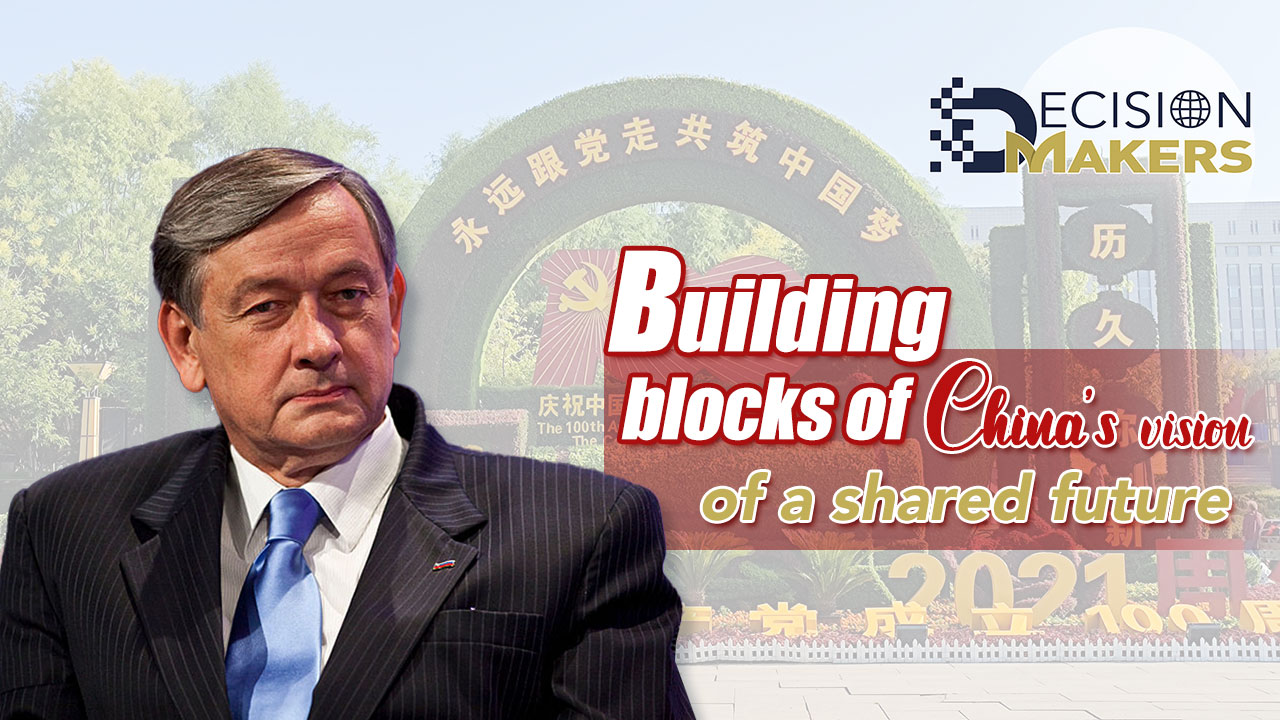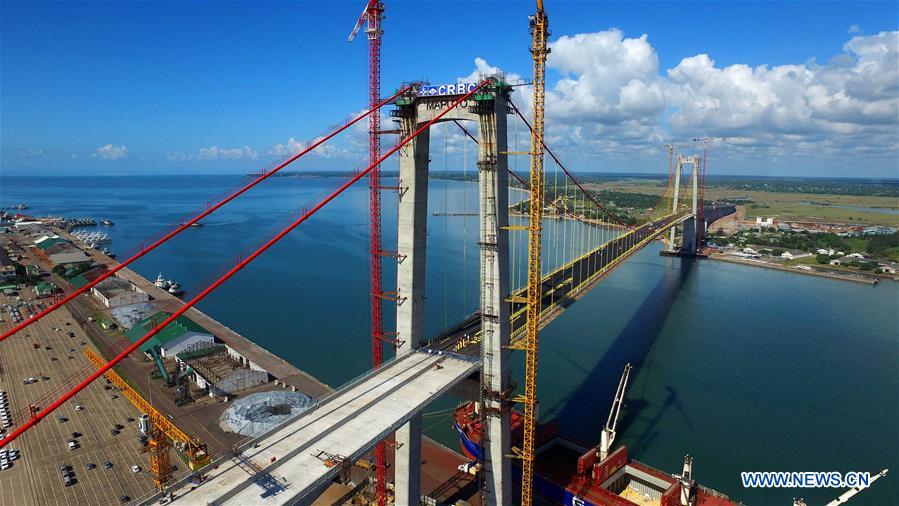
Editor's note: Decision Makers is a global platform for decision makers to share their insights on events shaping today's world. Danilo Türk is former president of Slovenia, president of the World Leadership Alliance - Club de Madrid, and non-resident senior fellow of Chongyang Institute for Financial Studies, Renmin University of China. The article reflects the author's opinions and not necessarily the views of CGTN.
Chinese President Xi Jinping explained his vision for a community with a shared future for mankind at the 19th Congress of the Communist Party of China in 2017. Four years later, there are two important reasons why now is the time to discuss the next steps.
First, the post-Cold War unipolar world era is over. American unilateralism reached its peak under former President Donald Trump, and a new multipolar world is now emerging. In this situation, an understanding of the conceptual framework of the international system - a community with a shared future for mankind - is necessary.
Second, a careful look at the existing patterns of international cooperation may reveal that the building blocks, on which a vision of a shared future should be developed further, already exist.
Take a look at the global system. Should the evolution of the international system rely on an all-encompassing global framework, such as the United Nations (UN), or should it be based on a set of alliances, partnerships and regional arrangements? Right now, all these types of multilateral cooperation co-exist.
New partnerships of states are emerging. Some of them are based on shared values and "like-mindedness" - a fashionable term expressing ideological proximity and shared geopolitical interests. It is important that these groupings understand their responsibilities - not only to their members, but also to the international system as a whole.
Geopolitical calculations or values-based considerations should not be allowed to create instability or even undermine the international system. Global stability and balance are among the necessary conditions for the future progress of us all.
This highlights the importance of the UN, a truly global and universal organization. The founding principles of the UN, the universality of its membership, its programs, funding and agencies and, importantly, its unique global convening power, are indispensable.
The UN should be strengthened to address the problems of our era more effectively. The state of the planet today provides ample needs and opportunities for global cooperation. Overcoming the COVID-19 pandemic is priority No. 1 for all. At the same time, the world is facing a triple planetary crisis of global warming, declining biodiversity and pollution. These problems can be resolved only by global action, and the UN is the indispensable forum for such action.
Naturally, leadership is required. It is encouraging that the United States and China are seeking common language on global warming. The whole world should encourage them to lead. The UN system should provide an effective framework for their action. This is a basic building block towards a globally shared future.
The second reason for an in-depth international discussion about China's vision of a shared future is found in the existing successful models of international cooperation and the new opportunities they provide.
The Belt and Road Initiative (BRI) is an important example. The progress it has made so far already offers significant experience as well as opportunities for the future. Take the example of the progress of the BRI in Africa. With the signatures of the Democratic Republic of Congo and Botswana in January this year, a total of 46 out of 55 African countries are participating in the BRI.

The Chinese-built Maputo Cross-sea Bridge in Maputo, Mozambique, May 8, 2018. /Xinhua
The Chinese-built Maputo Cross-sea Bridge in Maputo, Mozambique, May 8, 2018. /Xinhua
The cooperation includes a whole range of economic activities, such as infrastructural development, modern telecommunications, additional manufacturing industries and banking, as well as more traditional activities such as commodities and agriculture.
There is much potential in all areas of economic cooperation. Naturally, the policy choices and development priorities of African countries will be decisive. It is encouraging that African countries are strengthening their cooperation through the African Union under new arrangements such as the African Continental Free Trade Area (AfCFTA).
The future of the BRI in Africa will vitally depend on the aspirations of African countries, their development needs and their trading arrangements such as the AfCFTA. Moreover, African countries are already cooperating with a variety of partners. One of them is the European Union (EU), which has well-established ties with Africa and is also considering the necessary innovations for the future.
Should the needs and visions of African countries and Chinese and European contributions to African development converge? Should they aim at developing a "triangular relationship" based on African priorities, with effective cooperation involving both China and the EU?
Admittedly, this may seem like a long shot today, but new forms of cooperation will be increasingly relevant in the future. Seen from the European perspective, the European Partnership Agreements that the EU has concluded with many African countries have to be constantly reviewed in order to support industrial value creation and economic and social development in the countries concerned.
These agreements should protect infant industries and allow the successful functioning of the AfCFTA. At the same time, the projects developed within the BRI have been inspired by a similar philosophy.
It would be natural for the Chinese and European approaches to converge, based on the policy priorities of African countries and their development needs. Africa is the continent of the future and a large part of the vision of a shared future for mankind depends on the level of success in Africa.
The evolving realities of international cooperation - both global and region-specific – will define the realization of the vision of a shared global future. No individual country can succeed unilaterally. Unilateralism was thankfully short-lived.
The alternatives of cooperation and partnership already exist and are being tested, with new opportunities constantly opening up. China's vision of a community with a shared future for mankind provides strong incentives as well as valuable practical experience. They must be used for the benefit of all.
(If you want to contribute and have specific expertise, please contact us at opinions@cgtn.com.)

